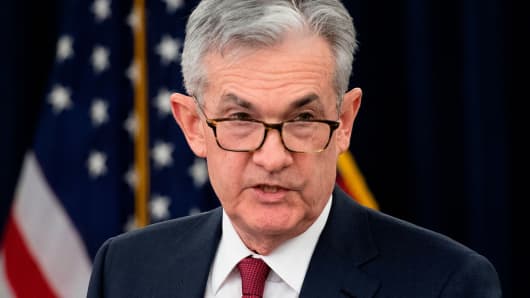
Jim Watson | AFP | Getty Images
US Federal Reserve Board Chairman Jerome Powell holds a news conference after a Federal Open Market Committee meeting in Washington, DC, December 19, 2018.
In the six weeks since a confident U.S.[1] Federal Reserve raised interest rates in response to a "strong" U.S. economy, consumer confidence dropped, wholesale prices weakened, financial markets wobbled and home sales fell.
Further afield, China[2] tried to boost lending for its slowing economy, the European Central Bank acknowledged ebbing growth in the euro zone, and the International Monetary Fund cut its world economic growth forecast and warned that global trade had nosedived as major nations squabbled about tariffs.
As they conclude their latest two-day policy meeting on Wednesday, Fed policymakers will have to decide how big a risk all of that poses to the near-decade-long U.S. economic expansion.
Their task is made more difficult by the delayed release of key economic data due to the recent 35-day partial shutdown of the U.S. government, including important reports on retail sales and gross domestic product.
If the case for caution wasn't strong enough, the sudden onset of a thick economic fog has made it so, analysts said ahead of this week's policy decision....

